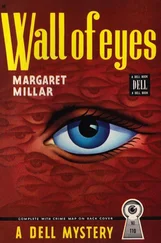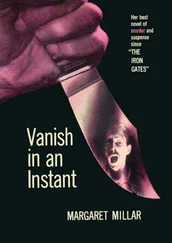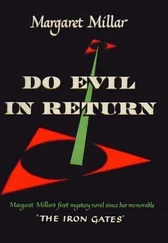“Do your best, Mr. Owen. I’m sure words will occur to you. They always do.”
The defendant sat quietly in his chair beside Donnelly. Only the pupils of his eyes seemed to move, brown and shiny like melting chocolate. His skin was as light as copper, a color rare and much admired in the islands he called his own.
In his thirty-seven years Cully had been in quite a few courtrooms around the Caribbean: in his own island of St. John, one in the Bahamas and another in Puerto Rico that was so small the entire courthouse and jail could have fitted into this one room. Its shoebox dimensions, the heat and humidity and the noise of everyone talking at once had a tendency to quicken the judicial process. A case rarely lasted more than a day or two. Somebody usually landed in jail. Whether it was the right one or not hardly mattered since jail was the back room of the warden’s house and the warden’s wife was a very good cook and had a liberal outlook on life. She liked to play Monopoly but was a sore loser. When she ended up after a week of play owing Cully $349, Cully found himself abruptly released and sent back to his ship with $1.29 and the final comment from the warden’s wife that that was all he deserved because he probably cheated.
“You may proceed, Mr. Owen,” the judge said.
“Yes, Your Honor... Harry Arnold and his son, Richie, remained on board the Bewitched , partly to keep it shipshape for the arrival of the owner, Mr. Belasco, who was in Palm Springs with his sick father, and partly because they didn’t know what else to do. They were not in the habit of issuing orders but of obeying them. In the absence of any order to obey, they stayed put.
“Richie body-surfed off the sandspit, and Harry spent considerable time talking to the fishermen on the commercial wharf. But he was getting more and more anxious about the continued absence of Cully King and Mrs. Pherson. Then, on the night of May fifth, Harry learned from the local radio news that the nude body of a woman had been found caught in a kelp bed. The body was extricated and brought to shore by one of the boats servicing the oil drilling platforms. We can assume that Cully King heard the same local news, for he appeared at the Bewitched about the same time as the police. Later in the evening Mr. Belasco also arrived from Palm Springs, and it was he who suggested examining the ship’s log for any record of a woman being taken aboard the Bewitched at San Diego. There was none.
“When Cully King was questioned by the police, his answers were terse and guarded. Because of statements made by the two Arnolds, he was forced to admit that Mrs. Pherson had come on board ship, but he claimed to know nothing about what happened to her, and he refused to say anything further until he was represented by a lawyer.
“Before Mr. King even had a chance to call a lawyer, one appeared as if by magic just after King was booked.
“This was no ordinary lawyer, this Charles Donnelly. He was widely known not only for his defense of criminals but also for the rather substantial fees he charged for his services. No one can figure out why he is taking on this case since King has no money.”
Donnelly rose to face the judge. “My fees, Your Honor, are beyond the scope of this trial and beyond the scope of Mr. Owen’s knowledge. I must therefore object.”
Before ruling on the matter, Judge Hazeltine leaned back in his chair and studied the ceiling again for some time. He rather enjoyed making both counsel wait. It reminded them that though this was a small kingdom, it was his and his alone, and they were but peasants toiling in the fields.
“Objection sustained,” he said finally. “There is no need, Mr. Owen, to refer to Mr. Donnelly’s fees since he is not on trial here for overcharging. Kindly confine your remarks to more relevant matters.”
The district attorney protested. “I consider this matter relevant, Your Honor, in view of the fact that the defendant is not in a financial position to pay the kind of fee Mr. Donnelly charges.”
“Do you want to be found in contempt, Mr. Owen?”
“No, Your Honor.”
“Then proceed with more caution, as directed.”
The district attorney shook his head and continued. “A court order was issued for the Bewitched to remain in port and the crew to stay aboard. Several searches of the entire vessel were conducted by deputies, but no trace of Mrs. Pherson’s presence was found.
“A week later one of Mrs. Pherson’s garments was recovered from the sea, caught in a commercial fisherman’s net. It was the blue and white striped coat she had been wearing when she left the hotel. It will be offered in evidence, and you will see it for yourselves and observe the most significant thing about it. It is completely buttoned. And why is this significant? It shows that Mrs. Pherson was not wearing that coat when she went overboard. It wasn’t torn off her body by the action of waves or sea creatures. That coat, as it was taken out of the fisherman’s net, was buttoned. Mrs. Pherson, a fastidious woman, had a habit of buttoning or zipping a garment when she put it on a hanger in order to keep its shape. That coat was taken off a hanger and thrown into the sea. It is a reasonable assumption that her other possessions were also thrown overboard but have not been recovered. It is, I submit, more than a reasonable assumption. The man sitting in the defendant’s chair was seen doing just that.”
Lordy, lordy, the judge thought. Owen dearly loves the sound of his own voice. If tape recorders weren’t prohibited in court, he’d probably make a cassette of all this and play it for the family at dinner .
The judge had met Virginia Owen several times, a sharpeyed little bore like Oliver Owen. But even the most sensible woman will do something stupid now and then, and Virginia had not only married Owen but had presented him with three sons. The judge didn’t much like children, so he avoided them, especially those related to Owen. They were stuck with some pretty rotten genes.
Owen’s speech went on, sounding more like a closing argument than an opening statement, an oratorical performance rather than a synopsis of evidence to be presented later.
Charles Donnelly began to doodle on the blank yellow page in front of him, a barn with a crisscross wooden door drawn very quickly and without lifting the pencil from the paper. Then another barn and another, until there were three rows of them, as identical as tracings.
He had been doodling like this (the trick was not to lift the pencil) for so many years that he couldn’t remember who’d taught him the trick when he was a child. The matter was too trivial to think about, let alone worry, but he’d finally asked a psychiatrist about it. The psychiatrist suggested that Donnelly give up doodling by not carrying any paper or pencils.
Though Donnelly seemed to be intent on his next row of barns, he was in fact listening carefully to what Owen was saying. During the course of his speech he had gratuitously mentioned the word “black,” each time in a derogatory manner. Black man, white woman; evil, good; voodoo and black magic as opposed to common sense.
The trial had barely started when Owen’s bigotry became apparent. He seemed boxed in by his prejudices, and the box was getting more and more crowded with Mexicans, Jews, blacks, gays, Orientals, until there was hardly room for Owen to do his job properly. In at least one instance he had neglected his homework. Juror No. 7, a computer technician named Hudson, had a sister who’d been happily married to a black for years.
“Greed,” Owen said. “Mrs. Pherson came to a violent end because of a man’s greed. Greed is one of the seven deadly sins, and in Mrs. Pherson’s case it was deadly indeed. Yes, and in Cully King’s case it may be deadly also. The profit motive makes this a murder with special circumstances. If the charge against a person is murder with special circumstances, that person is not entitled to bail and, if found guilty, must die in the gas chamber or spend the rest of his life in prison without possibility of parole. This indicates the gravity with which the state of California regards murder for profit. You, ladies and gentlemen of the jury, must do no less.
Читать дальше
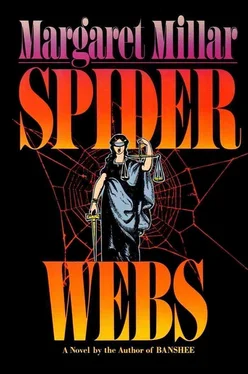


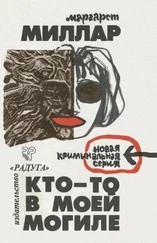
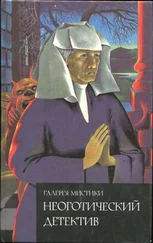
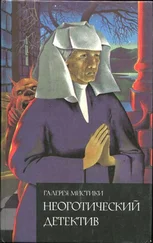

![Маргарет Миллар - Rose's Last Summer [= The Lively Corpse]](/books/384369/margaret-millar-rose-s-last-summer-the-lively-c-thumb.webp)
